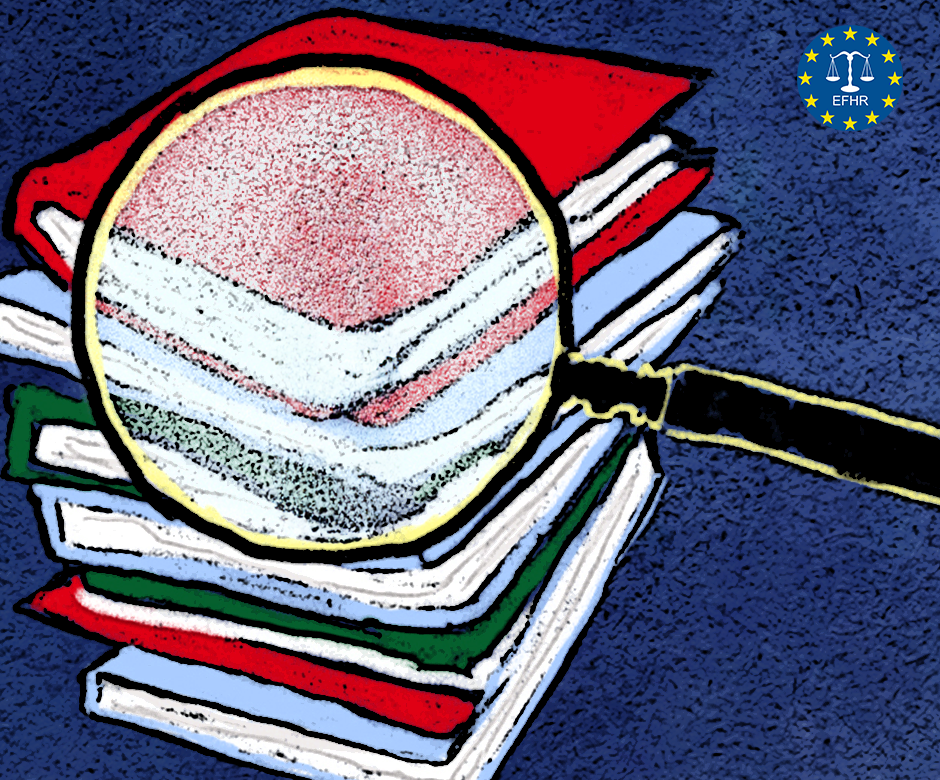- 2013/01/28
Why does the number of requests concerning change of surname fall?

 On 22 January, the Ministry of Justice of the Republic of Lithuania announced on their website that during the years 2010 and 2012 the number of requests for name and/or surname changes fell. The ministry perceives this to be as a result of the simplification of procedures for some kinds of justifications provided for alteration. Some powers of authority were handed over from the ministry to the registry offices located in the neighbourhood of the interested parties. There is no doubt that the simplification of procedures influenced the decreasing number of requests but the ministry omitted to include in the announcement a factor which, in the Foundation’s opinion, played a significant role in this fall in numbers.
On 22 January, the Ministry of Justice of the Republic of Lithuania announced on their website that during the years 2010 and 2012 the number of requests for name and/or surname changes fell. The ministry perceives this to be as a result of the simplification of procedures for some kinds of justifications provided for alteration. Some powers of authority were handed over from the ministry to the registry offices located in the neighbourhood of the interested parties. There is no doubt that the simplification of procedures influenced the decreasing number of requests but the ministry omitted to include in the announcement a factor which, in the Foundation’s opinion, played a significant role in this fall in numbers.
The ministry failed to point out the fact that in 2011 some relevant changes were introduced into the Regulations of the Ministry of Justice. This deals with the regulations of changes to a name, surname and nationality (ĮSAKYMAS DĖL ASMENS VARDO, PAVARDĖS IR TAUTYBĖS KEITIMO TAISYKLIŲ PATVIRTINIMO). Here are the regulations (but, as we will see in a moment, some have now been crossed off this list of justifications):
11.2 an applicant wants to share a surname with their spouse;
11.3 an applicant wants to return to their old surname;
11.4 an applicant wants to have a double surname (they want to add the spouse’s surname to their own);
11.9 an applicant wants to have a surname that will not indicate their marital status;
11.10 an applicant wants to have his non-Lithuanian surname in a grammatical form (that is a form with the Lithuanian suffix and/or ending) changed into the same surname in the non-grammatical form (without the Lithuanian suffix and/or ending), or on the contrary – they want their surname in non-grammatical form changed into the same one in the grammatical form;
17. If one of the parents of an underage child takes the spouse’s surname at the time of the marriage, or after a divorce they return to their old surname, the child’s surname is changed when the other parent and the child (if it is 10 years old) sign the written consent;
18. The nationality of an individual can be changed, if this applicant wishes to take the nationality of a parent/grandparent.
Removing point 11.9, concerning the forms of surnames not indicating marital status, and point 11.10, concerning the addition or deletion of a Lithuanian ending to or from a non-Lithuanian surname, might have had the greatest influence on the falling number of requests.
Taking into consideration all these changes, we can see that the situation looks completely different and, although the simplification of the procedures is praiseworthy, the aforementioned changes restrict rights, particularly due to the fact that there are people who would like to change their names on the basis of the now-outdated regulatory points. From this perspective, the recent announcement on the ministry’s website may be an indication of negligence and of an effort to distract the attention of citizens away from these unfavourable legislative changes.
EFHR



